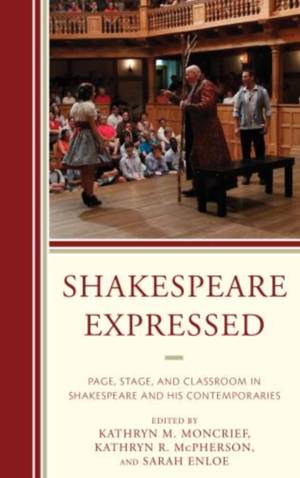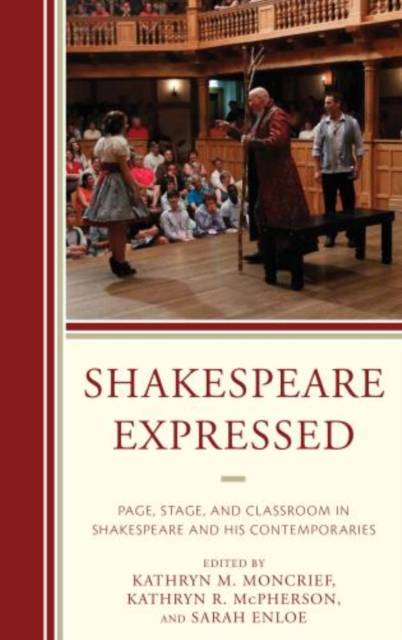
- Afhalen na 1 uur in een winkel met voorraad
- Gratis thuislevering in België vanaf € 30
- Ruim aanbod met 7 miljoen producten
- Afhalen na 1 uur in een winkel met voorraad
- Gratis thuislevering in België vanaf € 30
- Ruim aanbod met 7 miljoen producten
Zoeken
Shakespeare Expressed
Page, Stage, and Classroom in Shakespeare and His Contemporaries
€ 198,45
+ 396 punten
Omschrijving
A collection of essays originally presented on the Blackfriars stage at the American Shakesepeare Center, Shakespeare Expressed brings together scholars and practitioners, often promoting ideas that can be translated into classroom experiences. Drawing on essays presented at the Sixth Blackfriars Conference, held in October 2011, the essays focus on Shakespeare in performance by including work from scholars, theatrical practitioners (actors, directors, dramaturgs, designers), and teachers in a format that facilitates conversations at the intersection of textual scholarship, theatrical performance, and pedagogy. The volume's thematic sections briefly represent some of the major issues occupying scholars and practitioners: how to handle staging choices, how modern actors embody early modern characters, how the physical and technical aspects of early modern theaters previously impacted and how they currently affect performance, and how the play texts can continue to enlighten theatrical and scholarly endeavors. A special essay on pedagogy that features specific classroom exercises also anchors each section in the collection. The result is an eclectic, stimulating, and forward-thinking look at the most current trends in early modern theater studies.
Specificaties
Betrokkenen
- Uitgeverij:
Inhoud
- Aantal bladzijden:
- 314
- Taal:
- Engels
- Reeks:
Eigenschappen
- Productcode (EAN):
- 9781611475609
- Verschijningsdatum:
- 28/08/2013
- Uitvoering:
- Hardcover
- Formaat:
- Genaaid
- Afmetingen:
- 160 mm x 231 mm
- Gewicht:
- 612 g

Alleen bij Standaard Boekhandel
+ 396 punten op je klantenkaart van Standaard Boekhandel
Beoordelingen
We publiceren alleen reviews die voldoen aan de voorwaarden voor reviews. Bekijk onze voorwaarden voor reviews.







